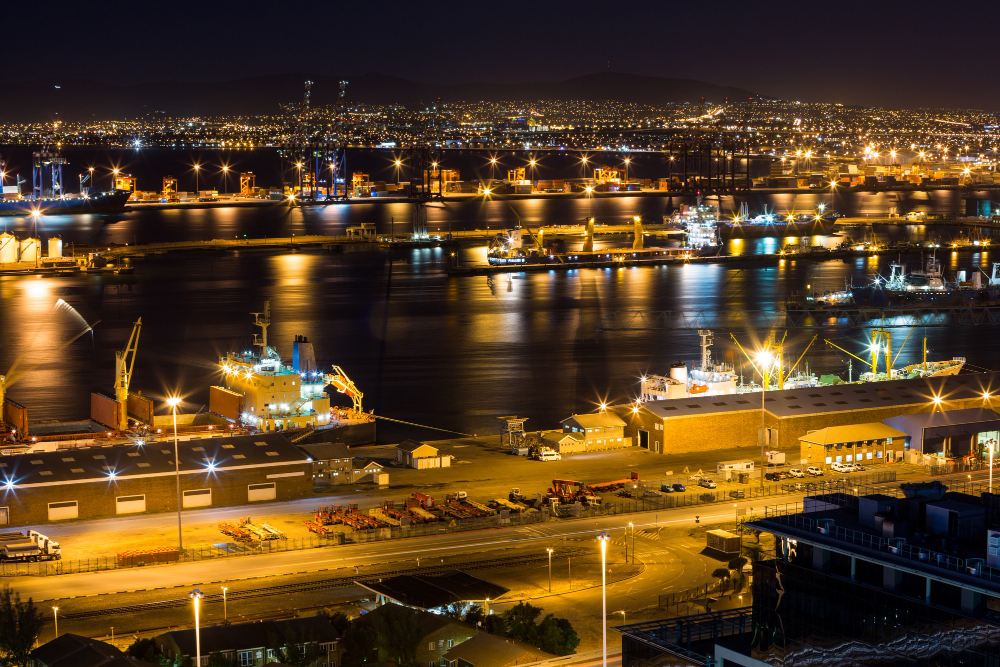Port of Gdańsk sees 40% cargo growth amid war in Ukraine, second-largest in EU
The port of Gdańsk in Poland recorded the second-highest growth among the EU’s largest ports last year amid Russia’s war in Ukraine.
Gdańsk handled 63.15 million tonnes of cargo in 2022, up from 45.02 million in 2021, show new data from Eurostat. That increase of 40.3% ranked behind only Nantes in France, which saw a 51.4% rise from 19.30 million to 29.21 million tonnes.
Spain’s Cartagena (17.3%) and Romania’s Constanta port (15.2%) saw the next largest rises. Meanwhile, Italy’s Taranto (-36%) saw the largest decline, followed by the Baltic ports of Klaipeda in Lithuania (-23.1%) and Tallinn in Estonia (-20.6%).
In terms of total volume of cargo, however, Gdańsk still remains well behind the largest ports in the EU: Rotterdam (which handled over 426 million tonnes in 2022) and Antwerp-Bruges (over 254 million). The Polish port ranked as the 10th busiest in the EU last year.
In proportional terms, Gdańsk’s increase last year was the largest it has recorded since 2010. In nominal terms, the 2022 increase was the largest on record.
The figures came as Poland last year became the main transport hub for humanitarian and military aid to Ukraine following Russia’s invasion. The energy crisis induced by the war also saw Poland increase coal imports by 60% to 20 million tonnes in 2022, as it sought alternatives to Russian supplies.
Just over 13 million tonnes of coal and coke, 175% more than a year earlier, went through the port in Gdańsk in 2022, reported local news service Trójmiasto.pl.
Poland also saw an influx of grain and other agricultural products last year from Ukraine, which saw its traditional Black Sea export routes blocked by Russia.
Warsaw had hoped the grain would be transported onward. However, a recent report by the Supreme Audit Office (NIK) found that, in the 16 months following the outbreak of war, of 4.3 million tonnes of cereals and rapeseed that came to Poland, only 700,000 tonnes was reexported to third countries.
That led to protests from Polish farmers, who saw prices for their produce decline, leading Poland to introduce a ban on Ukrainian grain imports.

